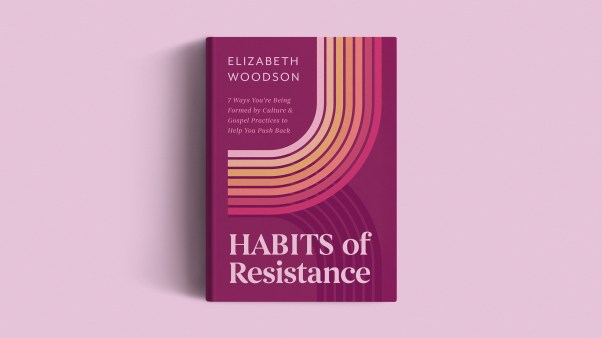I am old enough to remember life—and learning—before the internet. It was an era of studying flash cards, memorizing by rote, outlining questions by hand, and scouring libraries for answers. These practices seem downright archaic to students in my college classroom today. For them, entire worlds have always been available on their phones.
For decades, search engines have accelerated learning, but now even that kind of research is becoming outdated: In 2022, ChatGPT entered the world. A project of a company called OpenAI, ChatGPT is an artificial intelligence assistant working off a large language model (LLM). It’s a chatbot, digesting and summarizing vast quantities of information to answer queries in human-like sentences. But this program (and others like it: Claude, Google Gemini, and Grok, to name a few) doesn’t think so much as guess what a plausible answer to your question might be. ChatGPT is already one of the most-visited websites on the planet. You may not be using it, but your kids sure are.
The allure of these AI programs is simple, especially for students. In just seconds they can generate entire research papers. Responding to feedback, they can edit and tweak, building on past interactions to produce better results every time. The ethical and practical problems are legion: copyright disputes, ecological effects, a possible economic bubble, and plain deceit. Still, for an undergraduate on a deadline, the appeal is obvious.
Last semester, my undergraduate Christian Ethics class was awash with ChatGPT use. The irony of using an LLM to game a Christian ethics course aside, I get it: My class was a general-education, optional course, and almost none of my students had a deep understanding of the discipline of Christian ethics prior to the class.
It was only after running their midterm essays through the embedded AI detector in our learning management system that I realized how deep the problem went: The detector flagged 7 papers out of 30 that were more than 50 percent constructed using AI tools.
I had already included a provision in my syllabus prohibiting this kind of thing, but at the time I had no idea what was coming. And in talking with the students who had heavily relied on AI for their midterm papers, I was also surprised to find them fairly candid about using LLMs for schoolwork—and not just in my class but in many others. ChatGPT had, for many, become what memorization was for my college experience: a foundational part of the process, so basic as to be unquestioned.
They understood they had broken a rule by creating midterm papers this way. But they didn’t understand (and I hadn’t realized I needed to explain) why AI use was banned.
For an ethicist like me, artificial intelligence—and specifically LLMs like ChatGPT—generates lots of fascinating questions. I’d love to know whether AI assistants “dream” or whether a system like ChatGPT can be fed enough Shakespeare that it spits out a new sonnet of real worth. More personally, I wonder how long it will be before ChatGPT runs all us teachers and essayists out of business.
But perhaps most important to explore is whether and how AI use comports with a Christian vision of what it means to be human. Scripture gives no direct commands governing the use of such tools, of course, and humans are notoriously good at finding ways to make efficiency the unspoken metric of our moral deliberations. We will too easily be swayed by AI’s sheer convenience if we do not doggedly orient this conversation around what it means to be good creatures of God.
What is at stake here, in other words, is a question of virtue: Does this tool lead us away from or toward being God’s good creatures? This is what I’d failed to communicate in the syllabus.
Virtue is not where we’re used to beginning conversations about tools. We’re much more used to asking whether a tool does the job. But not every tool is a good tool. Some make us lazy, and some foster in us a love of not just completing a job but doing it well.
To tell the difference, we must ask questions about virtue, about character, about what kind of people we are meant to be and how the things we do lead us toward that end. As Paul and the earliest Christians would have understood the word, virtue has to do with how one’s character resonates with the grain of God’s universe, with what one is meant to be as God’s creature.
Virtue is entwined with sanctification in Christ, with the transformation of our hearts and souls by God’s grace. It is living in faith, hope, and love by habit. This is God’s gift, but it doesn’t happen overnight, and it doesn’t happen without us cooperating.
We can speak of virtue as a whole way of being, but in ancient Greek philosophy and much of the Christian tradition, four cardinal virtues—fortitude, prudence, temperance, and justice—have long been used to organize ideas around specific virtues. We can think of them, roughly, like this:
- Prudence: knowing how and when to do a thing, neither too early nor too late
- Temperance: knowing how much of an action is needed, neither too much nor too little
- Fortitude: continuing to do good things in the face of difficulty
- Justice: helping good things flourish among people
There are many other virtues too, like gentleness, patience, and generosity, but these four shape how they work and relate to one another. Taken together, they amount to wisdom. This may seem complicated, but if virtue is about reflecting God’s design, then we should not expect it to be simple, easy, or judged according to our personal inclinations or desired results.
Virtue helps us make sense of biblical commands, for God’s commands cohere to what it means for us to be God’s creatures. Virtue helps us understand and obey those commands not only because they are commanded but also because God’s commands suit the kind of people God has created us to be.
With that in mind, let’s return to the chatbots. Does using an LLM lead us away from or toward being God’s good creatures? Or put another way, does ChatGPT help us become virtuous? I confess I’m skeptical.
Let’s start with prudence. Because ChatGPT excels at finding patterns and organizing large essays, it undermines my students’ ability to make judgments about the research materials involved. If I write an essay from scratch, I have to weigh evidence and draw conclusions about whether and how to use different possible sources.
If I let ChatGPT do this work for me, I won’t develop the same intuitive sense of how truth and fact claims fit together or what information is relevant and how. This is a loss of prudence, which includes a sense of nuance we need to rightly navigate the world. (What makes this worse is that LLMs routinely “hallucinate” false information, providing the answer the user is expected to want even if it’s fake. But if I as the user have no familiarity with the material, I’d never know.)
What about temperance? By making writing and summarizing easy, LLMs speed students to the end of some assignments. But what might have use in limited situations—generating citations or correcting grammar—poses a huge temptation as well. For if it works well enough in those small ways, why not use it in more and more circumstances? Already, AI use by professional academics is spiking, and by one study’s measure, one-third of all students are using it on written assignments—all within three years of ChatGPT’s launch.
Temperance reminds us that too much of a good thing can cease to be good: Think oversalted soup or overmonitored children. Some things which make life easy can help us in moderation, but against the increasing demands of school life, LLMs are already proving to be one of those things which, once we adopt them, we tend to use without moderation.
The same ease poses problems for fortitude. The difficulty of learning new skills is part of what makes skills stick and part of how we learn perseverance. Learning—and the moral life in general—should involve struggle. It is in and through struggle that we unlearn bad habits, undo ignorance, and internalize hard-earned insights.
Thus far, ChatGPT seems to have failed on three of the four basic virtues. But perhaps justice requires us to invite everyone to use such an equalizing tool?
Again, I think the answer must be no. There’s a rudimentary fairness to letting all students use LLMs—but also a deeper injustice. Training students to use and even rely on AI does not give them what they need to flourish intellectually or morally as God’s creatures. This is a severe injustice. As I put it to my students, the problem is less their violation of academic integrity than the fact that they robbed themselves of what was rightfully theirs in the educational process.
After that midterm paper, I decided to scrap the written final in favor of an oral exam. I gave students ten possible questions to study in advance, and then we spent 20 minutes talking about one of them, chosen at random.
The results were fantastic. The students who did well had developed the capacity for nuanced thought, deeply engaged and understood the material, and made connections between topics. Those who had not put in the work did not do well, and they couldn’t rely on AI tools for help.
I was particularly pleased with my conversation with a student who had used an LLM to generate 75 percent of her midterm. She did exceptionally well in the final, and it proved to be a truly pastoral moment. The experience taught her that she didn’t need the LLM to do her argumentation and writing for her. And she came to see that the road of learning—the road of virtue—is slower but ultimately more rewarding. She saw the value in struggle.
In just a few weeks, she’d grown in her ability to make arguments, develop judgments, and work without a tool that had deprived her of the goods of education. This is not yet virtue, for I am not sure that she liked the hard work. But virtue is like Psalm 136, which invites us to praise the Lord’s goodness repeatedly whether we feel like it or not. You repeat a good thing until you get it. And you go through a hard process until, one day, you begin to love not only the result but also the journey.
Myles Werntz is the author of Contesting the Body of Christ: Ecclesiology’s Revolutionary Century. He writes at Taking Off and Landing and teaches at Abilene Christian University.
























